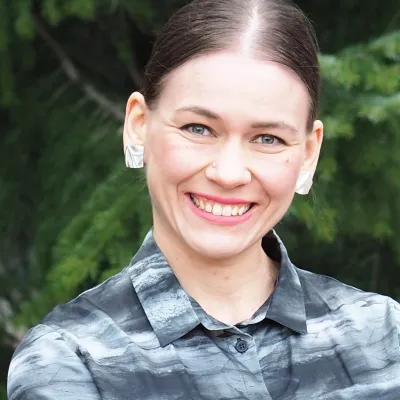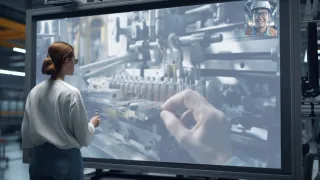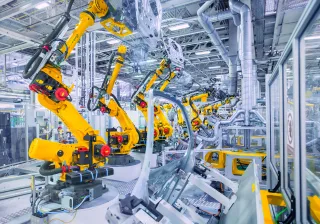In 2023, ‘metaverse’ was a much more prominent term in many different media. Words were also put into action. Last year, Finland created, among other things, its own strategic initiative in cooperation between business and research.
Several Business Finland-funded projects started last year, several are still awaiting funding decisions and a significant number more are in the pipeline. Business Finland will also soon launch a new mission called Immersive Digital Life. The term is also increasingly visible in EU projects and, in summer 2023, the Commission published a new initiative and strategy called Web 4.0 and Virtual Worlds.
So there’s a lot going on and especially coming up. Sometimes it seems that, in the midst of the hype, things are close to getting out of hand. Here are some of my thoughts on topics that I would like to see more and more of in this year's (industrial) metaverse debate:
- The metaverse is not a single technology, neither is it merely XR. For it to work, you need the whole value chain from sensors to data processing, AI, connectivity, visualisation, service providers and finally user interfaces. Ultimately, it's about interactive solutions between people and systems.
- Alongside technological skills, equal attention is needed for non-technical issues. These include, for example, reforming job roles and tasks, ensuring human cognitive ergonomics, responsibility issues, social and ethical factors, skills development, business models and, of course, safety.
- In words and deeds, even more attention should be paid to impact, i.e. what all this can achieve. We have the opportunity to modernise industrial models towards more meaningful jobs, better productivity and more sustainable solutions. Making jobs and sectors more attractive is also of the utmost importance. So let's talk about exploiters of the industrial metaverse.
- The artificial intelligence revolution is part of this overall transformation of the way we work. AI is therefore also an integral part of the metaverse debate. AI can assist humans by analysing information, suggesting actions and even providing work instructions in a visual format that is easy for them to understand in their own language. So, rather than setting the two against each other or separating them, we can go a step further by combining them.
I would hope that, to put it crudely, comparing the features of virtual glasses would lead to a holistic renewal of (work) processes and operating models made possible by new technologies. Similarly, I would hope that not everything that happens in the virtual world would be called metaverse. The essential element of the metaverse is a connection to the physical world, preferably in real time.
Karoliina Salminen has more than 15 years of experience in working between research and business. She is particularly interested in the collaboration between people and technology in an industrial context. Currently, most of her time is spent on the industrial metaverse, working with companies to see how we can modernise industrial activity through the metaverse. Karoliina works for VTT as Lead, Smart Manufacturing.
Did you find this article interesting?











